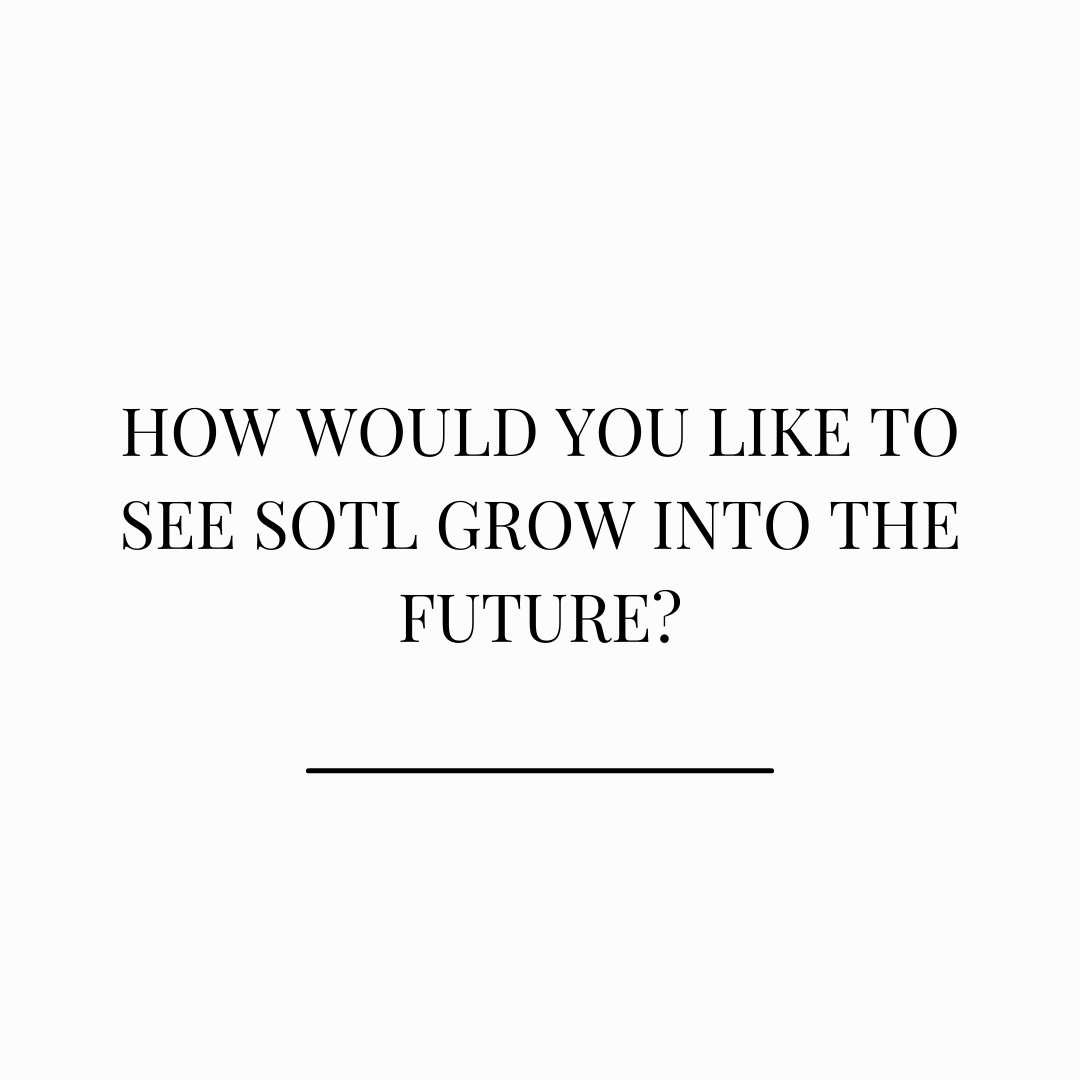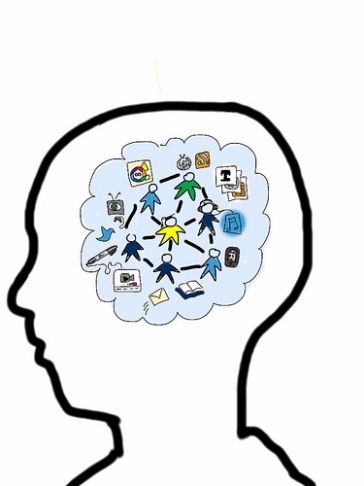I was asked to share some insights on the future of the scholarship of teaching and learning (SoTL) by Mindi Summers and Fabian Neuhaus as part of their work as educational leaders in residence at the Taylor Institute for Teaching and Learning. They asked me to reflect on my hopes for SoTL at UCalgary into the future. What would I most like to see?
Here is what I shared.
I hold a broad conceptualization of the scholarship of teaching and learning (SoTL). To me, SoTL extends beyond the classroom. It includes authentic and meaningful inquiry related to teaching and learning in a postsecondary context, and the many systems, practices, and processes that support teaching and learning across multiple organizational levels. You’ll note that I have not limited this definition to student learning. This expanded conceptualization recognizes that all students, staff, faculty, and academic leaders are learning within this system.
The other realization that I have come to after two decades of work in higher education is that the impacts of SoTL extend much beyond scholarly outputs, such as peer reviewed publications and presentations. Research conducted on the impact of UCalgary’s Teaching and Learning grants program (Jamniczky et al., forthcoming) speaks to the many meaningful impacts of SoTL including: working with students as partners in research and scholarship, expanding partnerships and supporting community-building with colleagues across disciplines, increased critical reflection on teaching and student learning, academic growth and improvements in teaching and research practices, as well as meaningful scholarly dissemination at the local, national, and international levels.
We know that SoTL is good for higher education. Full stop. It engages students in meaningful inquiry. It improves teaching and research practices. It inspires transdisciplinary partnerships and collaborations. It strengthens critical reflection on teaching and learning. It results in knowledge sharing and local, national, and international dissemination about teaching and learning.
Does SoTL include securing grants, engaging in inquiry, and disseminating scholarly outputs at conferences and in peer reviewed publications? Absolutely. It also includes engaging intentionally in critical reflection, asking meaningful questions in and beyond the classroom based on our local experiences and curiosities, gathering, and generating information related to these experiences and curiosities in ways that are most authentic to our experiences, and sharing our insights and pondering with colleagues through small, but significant conversations (Roxå & Mårtensson, 2009) in our local context.
What are my aspirations for SoTL at and beyond UCalgary over the next 10 years?
- All staff, faculty, students, and academic leaders recognize and speak to the value of engagement in SoTL across multiple organizational levels.
- We focus less on the outputs and more on the processes, impacts, and learnings from SoTL.
- We strengthen a sense of belonging in SoTL.
- We expand and connect SoTL communities and networks across units and disciplines.
SoTL is one of many key influencers impacting change in teaching and learning cultures. Other influencers include: 1) High-impact professional learning for individuals and groups, 2) Local-level leadership and academic microcultures, and 3) Learning spaces, pedagogies, and technologies (Kenny, 2021). As we look to continue to strengthen teaching and learning in higher education across multiple organizational levels, we must continue to broaden our conceptualization of SoTL, strive to ensure a culture of belonging in SoTL communities and identities, and recognize and value the influence and impact of SoTL in order to understand and strengthen teaching and learning and the many practices, processes, systems, and structures that influence teaching and learning in higher education.
A Call to Conversation
If you are in higher education and involved in SoTL, I’d love to hear your thoughts on SoTL and where you think it is headed into the future.
Better yet, grab a colleague or two and engage in a conversation on some of the following questions:
- Where and how have you seen SoTL emerge in your local teaching and learning context?
- What has been the influence of SoTL, on you, your colleagues, your department/faculty, institution, and/or discipline?
- How would you like to see SoTL grow into the future?
- What shift, changes or new perspectives would you most like to see?
- What supports would need to be in place to further grow SoTL?
References
Jamniczky, H.A., Mukherjee, M., Stewart,R., Mardjetko, A., Pira, R., Kenny, N.A. (Forthcoming) Insights and Opportunities: Evaluating a University Teaching and Learning Grants Program. Canadian Journal for the Scholarship of Teaching and Learning. Accepted for publication February, 2024.
Kenny, N. 2021. A framework for influencing change in teaching and learning cultures, communities and practices. Accessed at: /2021/08/13/a-framework-for-influencing-change-in-teaching-and-learning-cultures-communities-and-practices/
Roxå, T., & Mårtensson, K. (2009). Significant conversations and significant networks–exploring the backstage of the teaching arena. Studies in Higher Education, 34(5), 547-559.



